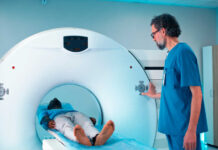
New science reveals that through specific daily habits, your brain can function as if it were 10 years younger, offering hope for those concerned about cognitive decline as they age.
At a Glance
- Cognitive decline is common with aging but not inevitable, with significant variability among individuals
- Regular physical activity can make your brain function as if it were four years younger by increasing blood flow and promoting neural connections
- A Mediterranean-style diet, quality sleep, mental stimulation, and strong social connections all contribute to maintaining cognitive vitality
- Managing health conditions like high blood pressure, diabetes, and high cholesterol is crucial for brain health
- Lifelong learning challenges neural pathways and significantly improves memory and cognitive function
The Science Behind Brain Aging
While changes in brain function occur naturally with age, research shows cognitive decline isn’t an inevitable part of growing older. Scientists have discovered remarkable plasticity in the aging brain, demonstrating its ability to adapt to stimuli and even generate new cells and neural connections. This challenges long-held beliefs about universal cognitive deterioration and offers hope for maintaining mental sharpness throughout life. Studies indicate significant variability in how individuals age cognitively, with lifestyle factors playing a crucial role in determining cognitive health outcomes.
Research published in the Mayo Clinic Proceedings emphasizes the importance of addressing modifiable risk factors rather than viewing cognitive decline as unavoidable. The aging brain demonstrates remarkable adaptability when properly stimulated and maintained. Researchers are focusing on interventions that leverage this plasticity to prevent or delay cognitive impairment and dementia, with promising results showing that specific lifestyle habits can significantly influence brain health trajectories.
— Leo Nissola, MD (@LeoNissolaMD) April 22, 2024
Physical Exercise: The Brain’s Best Friend
Physical activity stands out as perhaps the most powerful intervention for brain health. A recent study found that everyday movement can improve cognitive processing speed, effectively making the brain function as if it were four years younger. Exercise increases blood flow to the brain, stimulates the development of new nerve cells, and improves the efficiency of existing neural networks. Even moderate activities like brisk walking for 30 minutes daily can provide significant benefits for cognitive function.
Exercise enhances brain function through multiple mechanisms: it increases cerebral blood flow delivering vital nutrients, reduces inflammation that can damage neurons, boosts mood-enhancing neurotransmitters, and enhances neuroplasticity—the brain’s ability to reorganize and form new connections. Regular physical activity has also been shown to lower the risk of developing Alzheimer’s disease and dementia, improve memory, enhance focus, and reduce stress and anxiety levels that can impair cognitive function.
Nutrition and Brain Health
What you eat significantly impacts your brain’s health and function. Research consistently shows that a Mediterranean-style diet rich in vegetables, fruits, whole grains, olive oil, and fish correlates with reduced risk of cognitive impairment and dementia. This dietary pattern provides essential nutrients that support brain health, including omega-3 fatty acids, antioxidants, and anti-inflammatory compounds that protect brain cells from damage and promote optimal function.
Specific nutrients play key roles in brain health. B vitamins, particularly B6, B12, and folate, help regulate homocysteine levels, high amounts of which are linked to cognitive decline. Antioxidants from colorful fruits and vegetables protect against oxidative stress that can damage brain cells. Healthy fats, especially from sources like fatty fish, nuts, and olive oil, provide the structural components needed for brain cell membranes and communication pathways. Limiting alcohol consumption and avoiding processed foods high in refined sugars and unhealthy fats also contributes to cognitive protection.
Mental Stimulation and Lifelong Learning
The brain thrives on challenge and novelty. Engaging in mentally stimulating activities helps maintain cognitive function by building new neural connections and even generating new brain cells. Activities that require active mental engagement rather than passive consumption provide the most benefit. These can include learning a new language or musical instrument, taking up challenging hobbies, solving puzzles, or engaging in strategic games that require planning and problem-solving.
Cognitive reserve—the brain’s resilience to damage—can be built through lifelong intellectual engagement. People with greater cognitive reserve often show fewer symptoms of cognitive decline despite having physical signs of brain aging or disease. This suggests that mental stimulation throughout life creates alternative neural pathways that can compensate when others are damaged. Research indicates that pursuing varied intellectual activities provides more comprehensive protection than repeatedly practicing the same skills.
Sleep, Stress Management, and Social Connections
Quality sleep is non-negotiable for brain health. During sleep, the brain consolidates memories, clears out toxins, and prepares for the next day’s mental challenges. Adults should aim for 7-8 hours of quality sleep nightly. Poor sleep has been linked to accelerated cognitive decline and increased dementia risk. Establishing consistent sleep routines and addressing sleep disorders can significantly improve cognitive function and protect against age-related decline.
Chronic stress damages the brain’s memory center, the hippocampus, and impairs cognitive function. Effective stress management techniques include mindfulness meditation, deep breathing exercises, physical activity, and pursuing enjoyable hobbies. Taking time to relax and recharge protects brain cells from the harmful effects of stress hormones and supports optimal cognitive performance.
Maintaining strong social connections provides powerful brain protection. People with active social lives and meaningful relationships show slower cognitive decline and lower dementia rates than socially isolated individuals. Social engagement challenges the brain through conversation, perspective-taking, and emotional processing. It also reduces loneliness and depression, both risk factors for cognitive decline. Regular social interaction, whether through family gatherings, community involvement, or volunteer work, offers substantial cognitive benefits.
Sources:
https://www.sciencedirect.com/science/article/abs/pii/S0025619611622350
https://www.health.harvard.edu/mind-and-mood/12-ways-to-keep-your-brain-young
https://www.alzdiscovery.org/cognitive-vitality/first-steps
My brain felt 10 years younger after 8 weeks of this simple habit
https://www.mindbodygreen.com/articles/this-is-how-to-make-your-brain-act-4-years-younger


















